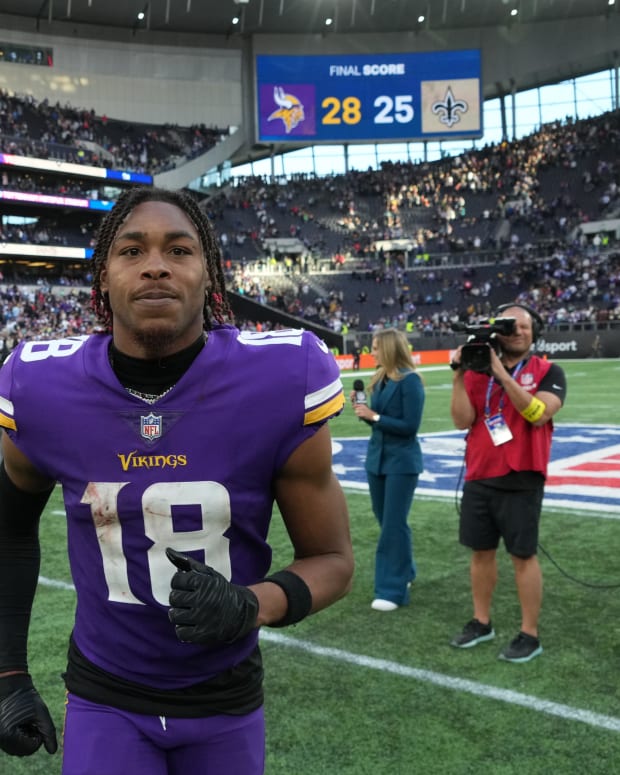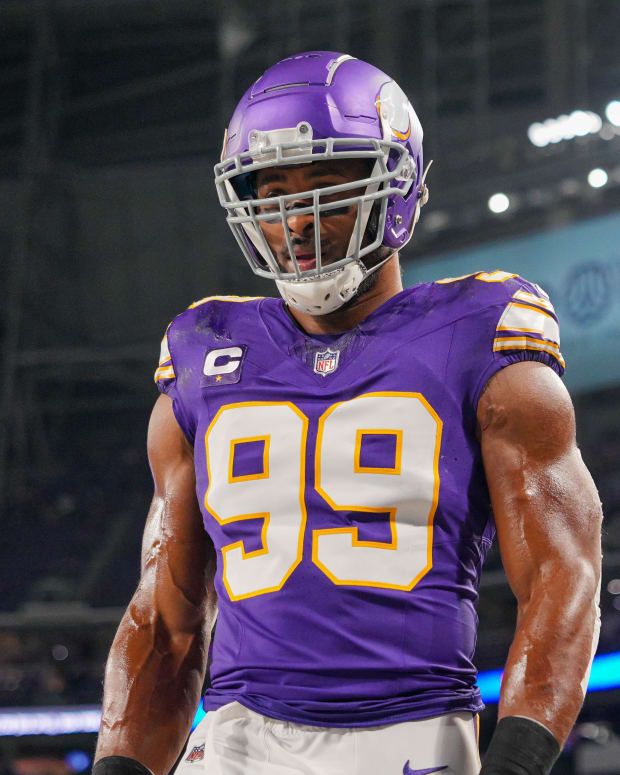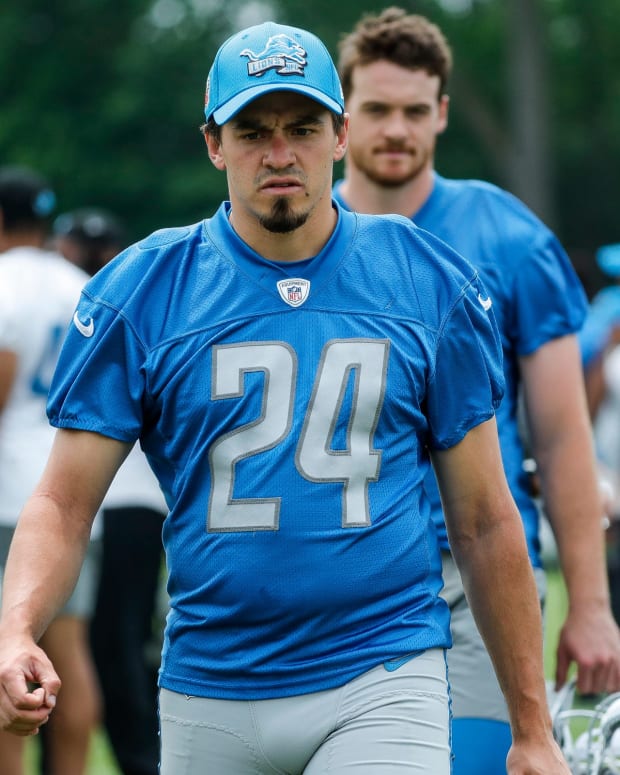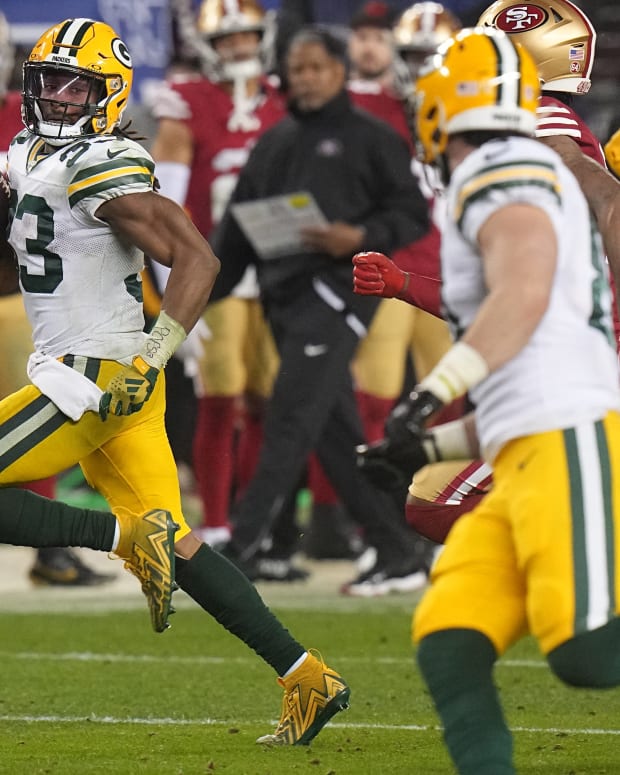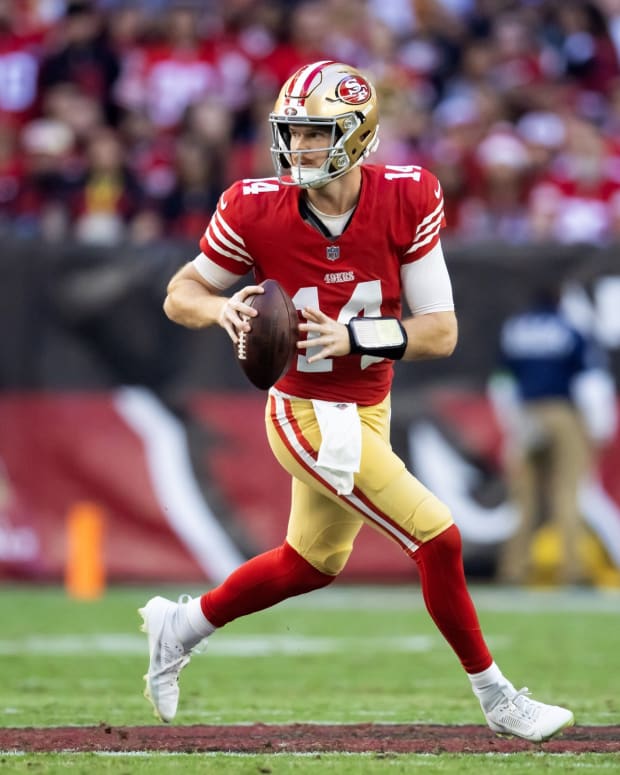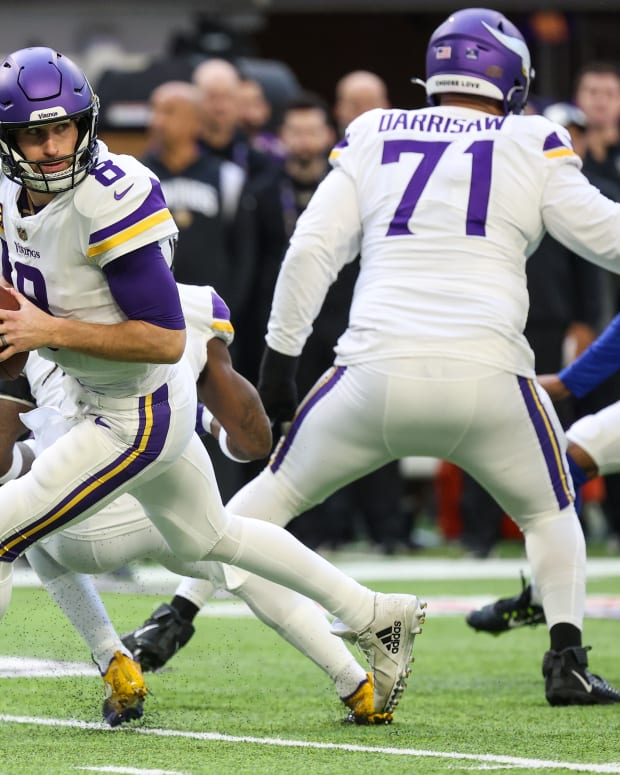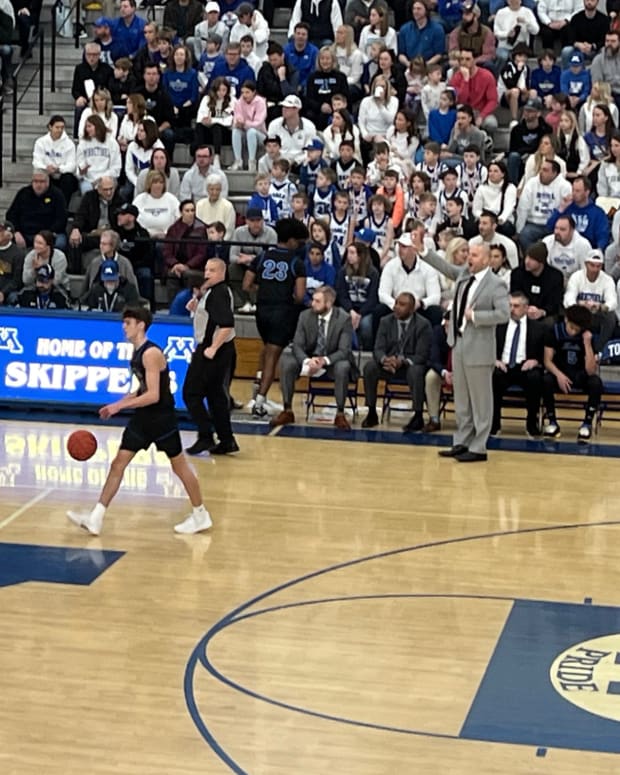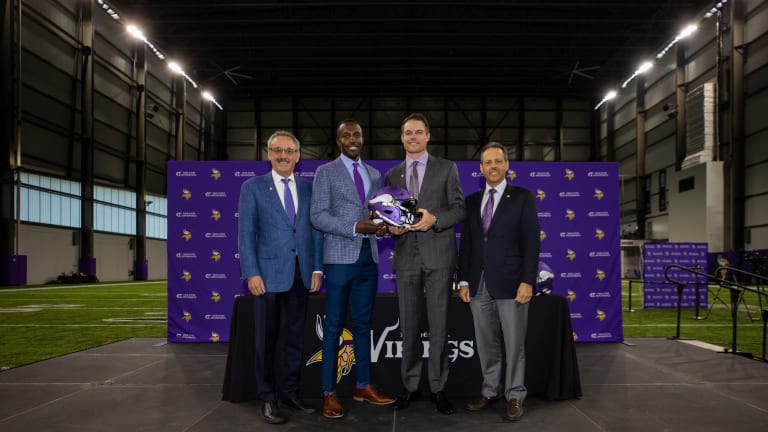
What does it mean for Vikings to have a 'culture of collaboration?'

EAGAN — When Kwesi Adofo-Mensah was a researcher for the 49ers, he used to sit in his office in San Francisco and think about how he would run a team if anyone ever put him in the general manager’s seat. What would the draft be like? Would we play songs in the morning to get things going? How would we get everyone to put our team ahead of all else in a world with many competing interests?
“All these things that you dream about, they’re here and they’re happening,” Adofo-Mensah said. “It’s been special to be a part of, and I’m so happy that everybody here has responded positively to it.”
When Adofo-Mensah talks about his vision for a successful working environment, he uses words that we’re not used to hearing in the football realm. Usually coaches and GMs talk about toughness, character, hard work and occasionally they’ll suggest biting the kneecaps of the opponent. Adofo-Mensah’s go-to phrase has been “culture of collaboration.”
Toward the top of the list of reasons the Wilf ownership decided to move on from Rick Spielman and Mike Zimmer was that the ecosystem inside TCO Performance Center had become noxious. There were many people within those walls — from the front office to assistant coaches to players — who felt like they were left behind in the process of chasing a championship. It’s been defined either directly or indirectly in a bunch of different ways, whether it was Eric Kendricks talking about Zimmer’s “fear-based” culture or reports that assistant coaches didn’t want to join the Vikings or that nepotism had broken down belief that they were all trying to achieve the same thing.
Adofo-Mensah’s “culture of collaboration” offers something that sounds completely different from all of that. But even he would have to admit that those three words aren’t all that explanatory about the ways in which the Vikings will actually turn around their culture and how exactly it will result in winning football games. On the surface, it reads more like it was taken from the pages of Ryan Howard’s business school than an actual outline for getting the team deep in the playoffs.
So what does it really mean? How are they implementing it? Will it make a difference or is it all just buzzy McWord salad?
When Flip Brown started Business Culture Consultants 22 years ago, people used to ask him what “culture” in business meant. Nobody asks him anymore. A study by Columbia Business School found that 92% of over 1,400 CEOs and CFOs surveyed said they believed improving their firm’s corporate culture would improve the value of the company. But Brown has found that everyone in business has different definitions of what culture means.
“The definition that I use is: The shared beliefs, assumptions and behaviors used in an organization in terms of how to make sense of things, how to react to things, how to solve problems and how to work together,” Brown said over the phone. “Some of those assumptions and beliefs are specified and written and some are not.”
Solving problems and working together was not exactly something the previous regime was lauded for doing. Former receiver Stefon Diggs told ESPN following his trade to Buffalo that his main gripe with the Vikings was that they wouldn’t hear him out concerning key aspects of the team’s offense. Zimmer openly made fun of the analytics department’s suggestions at the NFL Combine in 2020 and Spielman reportedly pushed aside warnings from his scouts not to draft certain players who ended up failing. That’s not to say that the Vikings’ top brass never listened to anyone else in the past, but they struggled enough to have key contributors to the cause feeling left out.
“The biggest gap that I see in business culture is: On one hand you have [the company’s] values and beliefs and on the other you have the behaviors of owners, managers and supervisors and if there’s a significant gap there the employees will automatically know that,” Brown said. “That’s what creates the discord and people’s decision to grow themselves out of the culture.”
Adofo-Mensah and head coach Kevin O’Connell are trying to prevent their preached values and beliefs differing from their behaviors.
“You guys will see that more and more around the building, but this idea that ‘our’ – it’s our team,” O’Connell said. “We’re working in conjunction with the players, for the players — they feel that buy-in from us, and they’re giving it right back to us.”
The trouble in football with making it “our team” is that things go wrong constantly. Bucks are passed, fingers are pointed and excuses are made every week when teams fail to execute their best strategies. To channel Mike Tyson, everybody’s got a plan for their culture until they lose three games in a row.
“Figuring out what it is for your culture and sticking to that and not, at the first bump in the road, kind of reverting to something else, changing everything,” safety Harrison Smith said.
Brown, a former psychologist who has worked with over 100 companies since launching Business Culture Consultants, says that achieving a consistent culture is the way for any business or team to survive its bumps in the road. Living in Vermont, he uses the example of the long-time Bill Belichick-Tom Brady leadership duo in New England. Another example might be the Pittsburgh Steelers, who have never had a losing record under Mike Tomlin, despite all sorts of different issues from Antonio Brown drama to poor quarterback play and all the other things teams go through from year to year.
“What is the sense of purpose? If the sense of purpose is about egos and salary, then the collaboration is going to be compromised,” Brown said. “If it’s truly about, ‘I don’t care about who has the ball as long as we are moving it forward, you want everyone to have set their ego aside and be unified in the shared purpose.’”
But again, this is football. How can a team create an environment devoid of ego and salary concerns where everybody just wants the ball to cross the goal line?
Harrison Smith says that starts with a more personal approach.
“Positivity, relationships…. all working together toward the same goal,” Smith said. “[Kevin O’Connell] knows everything about every coach that’s here. He knows everything about every player. We’re going to be into the schemes and we’re going to get into that, but we’re starting with trying to build some trust amongst each other, some accountability, some relationships.”
“Knowing the guy next to you, knowing the guy coaching you, knowing about what makes them tick, their families,” Smith continued. “Having that kind of ownership of not only like your role in this building and on gameday, but how that affects others and how that can help others and how they can help you and we can collectively have success.”
Beyond getting to know players, coaches and front office personnel on a personal level, Brown suggests what he calls “servant leadership” for Adofo-Mensah and O’Connell.
“If the team wins, the players get the credit but if the team loses the leader takes responsibility,” Brown explained. “If he has the respect of people because he has integrity, because he does what he says he’s going to do, because he speaks well and listens well and has empathy and compassion while still driving for results, people generally respect those leaders regardless of the field that they are in.”
This strikes at the heart of another common criticism of Zimmer and Spielman: That responsibility was often placed elsewhere when things didn’t go the right way. It’s yet to be determined how Adofo-Mensah and O’Connell will handle failure.
Everything is easier said than done in the NFL. Getting everyone’s opinions and working together to make decisions is undoubtedly positive but what about when there is dissent? It’s easy to say that the voices will all be heard, it’s tougher to say no.
“The leader has to balance between being inclusive and decisive,” Brown said, suggesting the leaders be authoritative without being authoritarian.
The Vikings’ GM and head coach are also in charge of managing the wants and needs of ownership, who reportedly guided the overall direction of the team’s offseason moves, particularly at quarterback. Brown said that he only works with clients whose upper management or ownership are willing to look themselves in the mirror and question their own role in how the culture reached a down point.
“The owners, do they understand that they are part of the solution and part of the problem? Brown said. “Usually they have a significant level of wealth that tends to isolate them from real-world experience...when things get out of balance it’s tough to recognize that.”
The real-world experience of the Vikings over the last four years has been underachievement on the field and tension off of it. They are making a bet that the culture of collaboration will change both of those things.
“By no means do we feel like we’ve done anything,” Adofo-Mensah said. “We feel like we just got started.”

